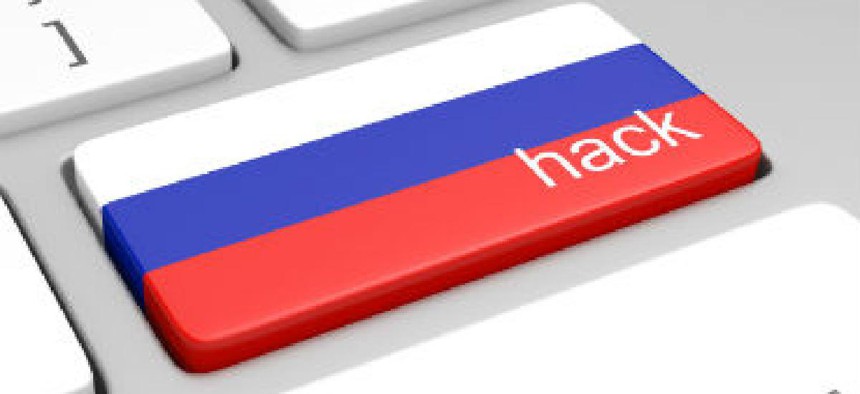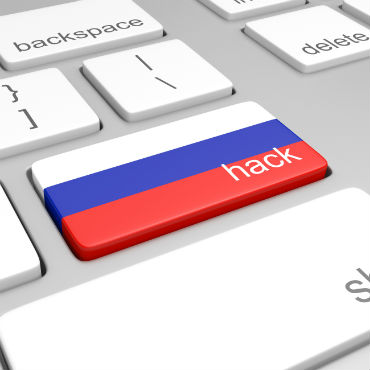DHS, ODNI blame Russia for election-season hacks

In a joint statement, the Office of the Director of National Intelligence and the Department of Homeland Security attributed several high-profile hacks on political targets to Russia.

For months now, political leaders, intelligence officials and industry experts have accused Russia of being behind hacks of Democratic Party servers. The Department of Homeland Security and the Office of the Director of National Intelligence have just made it official.
"The U.S. Intelligence Community is confident that the Russian government directed the recent compromises of emails from U.S. persons and institutions, including from U.S. political organizations," reads a joint statement issued by DHS and ODNI. "These thefts and disclosures are intended to interfere with the U.S. election process.... We believe, based on the scope and sensitivity of these efforts, that only Russia's senior-most officials could have authorized these activities."
It's not clear if or how the administration will retaliate, beyond naming and shaming Russia. but such efforts could take place without any publicity on the part of the government.
"The American public and our democracy are resilient to foreign attempts to manipulate public opinion. The U.S. Government is committed to ensuring a secure election process and has robust capabilities to detect efforts to interfere with our elections," a senior administration official told FCW in an emailed statement.
"The President has made it clear that we will take action to protect our interests, including in cyberspace, and we will do so at a time and place of our choosing. Consistent with the practice we have adopted in the past, the public should not assume that they will necessarily know what actions have been taken or what actions we will take," the official said.
Members of Congress have been hammering the Obama administration to retaliate against Russia for months. They have argued that the failure to take assertive action has only emboldened Russia.
"Vladimir Putin's regime has crossed a line, and he should know that the United States will not allow our political process or our future to be dictated by foreign adversaries," Rep. Michael McCaul (R-Texas), chairman of the House Homeland Security committee said.
At a Washington Post Cybersecurity Summit in Washington on Oct. 6, Lisa Monaco, assistant to the president for homeland security and counterterrorism, rebuffed critics and said the White House has been building a cyber response and deterrence framework.
"We will respond in a time and place and manner of our choosing, and when we do so, we will consider a full range of tools -- economic, diplomatic, criminal law enforcement, military -- and some of those responses may be public and some of them may not be," she said.
Rep. Adam Schiff (D-Calif.), ranking member of the House Permanent Select Committee on Intelligence, released a statement saying, "I applaud the administration's decision to publicly name Russia as the source of hacks into U.S. political institutions. We should now work with our European allies who have been the victim of similar and even more malicious cyber interference by Russia to develop a concerted response that protects our institutions and deters further meddling."
It remains to be seen whether the formal announcement will lead to more calls for public retaliation against Russia. Relations between the U.S. and Russia have been fraught for some time, and negotiations between the two countries over the war in Syria recently broke down with Secretary of State John Kerry accusing Russia of committing war crimes.
The DHS/ODNI statement went on to say that the intelligence community is not able to attribute recent "scanning and probing" of some state election systems to the Russian government, despite the fact that the activity "in most cases originated from servers operated by a Russian company."
The statement reiterated what officials have been saying for weeks -- that U.S. voting systems are resilient and extremely difficult to hack or manipulate. "States ensure that voting machines are not connected to the internet, and there are numerous checks and balances as well as extensive oversight at multiple levels built into our election process," the statement reads.
Nevertheless, "DHS continues to urge state and local election officials to be vigilant and seek cybersecurity assistance from DHS," according to the statement. "Secretary [Jeh] Johnson and DHS officials are working directly with the National Association of Secretaries of State to offer assistance, share information, and provide additional resources to state and local officials."


